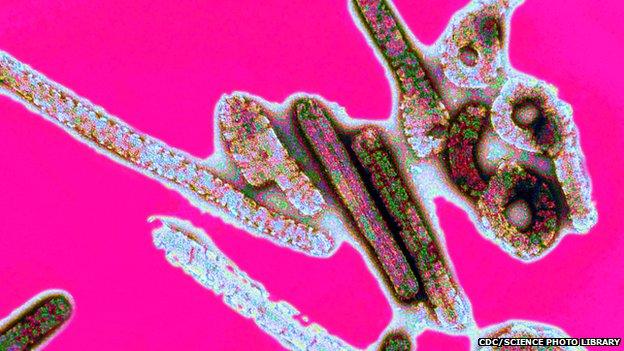Ebola: Meningitis risk must be on radar says WHO
- Published
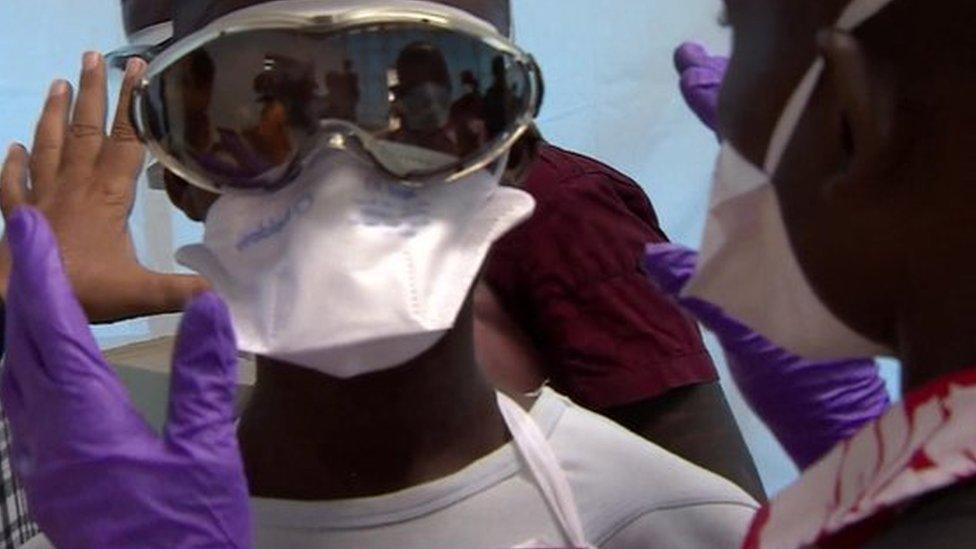
Doctors should be on the look out for the emergence of meningitis in Ebola survivors across West Africa, says the World Health Organization.
The news comes after experts in London diagnosed the condition in a British survivor months after she recovered from the Ebola virus.
Scientists say meningitis - a serious brain infection - is rare after Ebola, but may be going undiagnosed.
They are reassuring people that it causes no infection-risk to the public.
There are around 17,000 people who have survived the Ebola virus, most in the worst-affected countries of Sierra Leone, Liberia and Guinea.
Ebola persists
After patients recover they can go on to suffer from joint pains, eye problems and fatigue.
Scientists believe this happens because the virus can persist and grow in parts of the body that natural immune defences cannot easily get to - such as the eye.
But speaking at a news conference at the Royal Free Hospital in London experts said they have now confirmed that it can also stay on in the brain and lead to meningitis - many months after patients have recovered from their initial illness.
In this case the virus is cleared from a survivor's blood but persists and later multiplies in the brain and spinal cord.
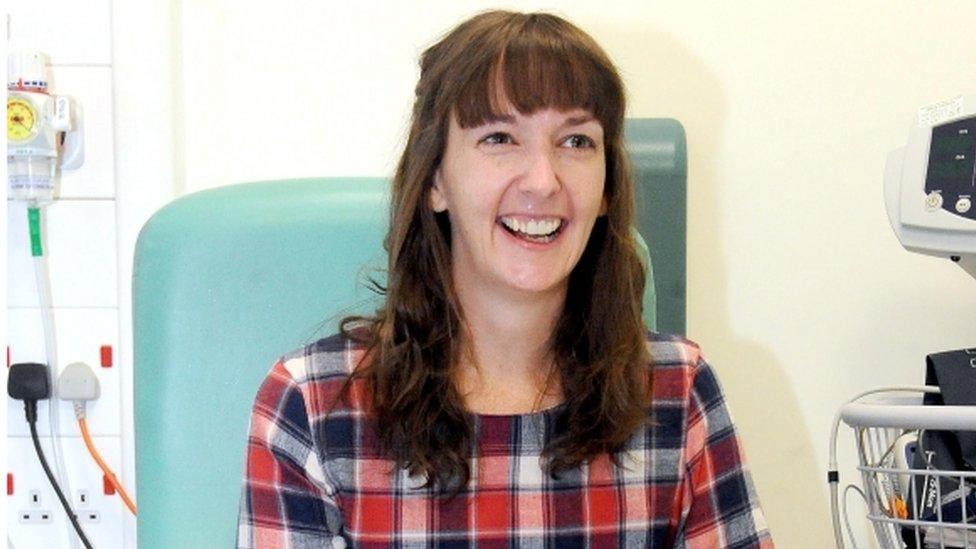
Pauline Cafferkey recovered from Ebola last year after spending a month in a specialist isolation unit at the Royal Free Hospital in London
Dr Daniel Bausch, from the World Health Organization, described the health and social problems survivors face as "an emergency within an emergency".
But he warned: "In West Africa of course it is much harder to know [about meningitis cases] as we don't have the means to really detect this very easily.
"So it is possible there could have been patients in West Africa who had meningitis and people didn't attribute that to Ebola or didn't think about Ebola or test for Ebola.
"This of course raises this on the radar for us in that we need to be on the look out for this in patients in Europe and America and as well as of course the many, many more patients in West Africa."
Doctors at the Royal Free Hospital diagnosed meningitis in British nurse, Pauline Cafferkey, who contracted Ebola while volunteering in Sierra Leone in 2014.
She recovered from the virus but returned to hospital in October 2015 after she developed symptoms of meningitis.
Signs and symptoms of meningitis can include headaches, fever, agitation, drowsiness and sensitivity to bright light.
Ms Cafferkey has been treated with an experimental anti-viral drug and is improving. She will remain in hospital for some time.
- Published8 October 2014
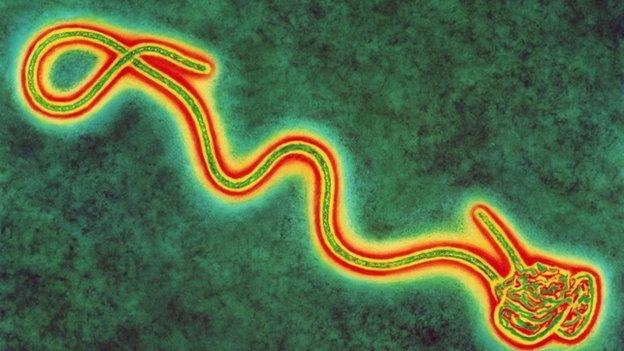
- Published23 March 2015
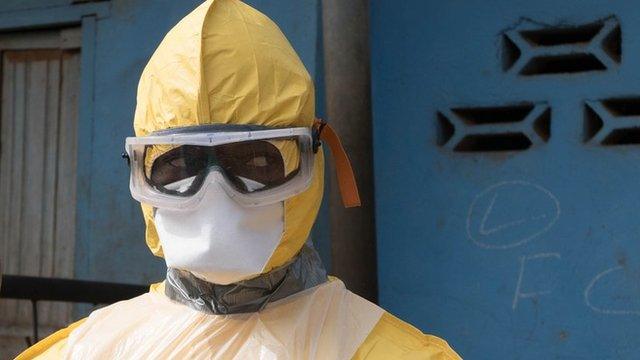
- Published30 December 2014
